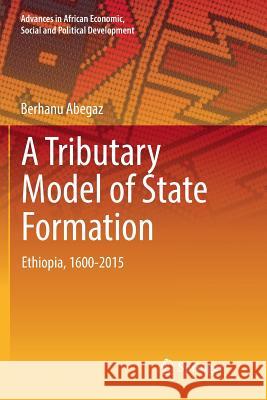A Tributary Model of State Formation: Ethiopia, 1600-2015 » książka
topmenu
A Tributary Model of State Formation: Ethiopia, 1600-2015
ISBN-13: 9783030093266 / Angielski / Miękka / 2018 / 190 str.
Kategorie BISAC:
Wydawca:
Springer
Seria wydawnicza:
Język:
Angielski
ISBN-13:
9783030093266
Rok wydania:
2018
Dostępne języki:
Numer serii:
000469941
Ilość stron:
190
Waga:
0.32 kg
Wymiary:
23.39 x 15.6 x 1.19
Oprawa:
Miękka
Dodatkowe informacje:
Wydanie ilustrowane











